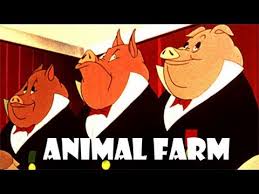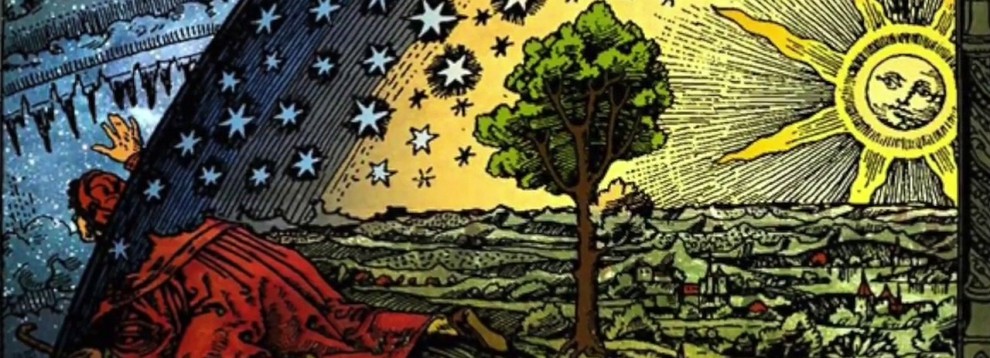Today we will explore the following potentially controversial one-liner:
Hate and violence are an infection that often spreads in new ways through their victims.
So what does that mean? It’s just another way of describing the cycle of violence, that so often works as a vicious circle….
From the beginning of our human history, certain forms of evil have always been furthering themselves in the form a spiral of violence. This spiral of violence works a bit like a zombie apocalypse: if the zombie bites you, you get infected with ‘zombieism’ and thus become one yourself, and you will most probably bite others too.
Surely my comparison isn’t perfect: The big difference here is that zombies generally work together against uninfected humans, while the evil aroused in us by violence and hate done to us is mostly directed to those who infected us with it. But hate and violence do work like an infection passed on to their victims nonetheless.
The principle is very simple: other people filled with hate and violence towards us do evil to us, and that damages us (or even kills us or people around us) and part the reaction to that evil is that it creates similar hate and violence growing inside of us.
It is probably one of the least-recognised effects of evil done to us, although one of the most destructive too. Evil done to us often grows more evil in us and thus generates a new host from which it can operate. It’s often very simple: the people attacked in a barbaric war will fight back with equal barbarism. The oppressed become the oppressed. The hurt will become the hurting one. Th e bullied becomes the bully…
e bullied becomes the bully…
The violated go on violating the violator and those who are in his camp, and so on… The spiral of violence is sad and often very predictable, and will never bring us forward. The only thing that come from such a reaction is new variations on the well-known ‘animal farm revolution’: the animals who have killed the farmer will in the end become worse than the farmer ever was. Like a friend of mine says in one of his songs:
History does not repeat itself, it just escalates
I repeat this: one of the most dangerous effects evil done to us can have is to take us as it’s new host to continue its life cycle like a virus that goes from host to host, mutating freely to adapt and maybe even get more vicious. And it’s hard to stop this cycle. Our human sense of justice demands that we are righted, and that the evil is repaid.
We often forget here, blinded by the logic of this virus, that revenge does never make anything right or does not bring anything or anyone gone back, it only devours our soul from the inside and dissolves our own humanity!
Real justice is restorative! Evil must be stopped, and its influence limited, not just on us, but also in us!
Now, what I’m telling here is not very new at all. It’s something known to a lot of tradition, from the words of Jesus to some sayings from the Buddha or the Tao Te Ching. Take for example the next saying:
He who holds on to hate is like one who drinks poison and expects the other to die. (ascribed to the Buddha)
Deep down inside we should know this. Hate will only destroy us from the inside, and evil will never work drive out evil, violence is not the best way to stop violence (except in the case that the other side is completely exterminated). It will not make the world better. We need to stop this virus, this endless cycle.
If we want to live, we need to erase the cycle of violence. This means that we need to answer evil with good. Even in our heart. Especially in our heart.
Let’s contemplate the words of Jesus in Luke 6 in this regard:
27 “But I say to you who are listening: Love your enemies, do good to those who hate you, 28 bless those who curse you, pray for those who mistreat you. 29 To the person who strikes you on the cheek, offer the other as well, and from the person who takes away your coat, do not withhold your tunic either. 30 Give to everyone who asks you, and do not ask for your possessions back from the person who takes them away. 31 Treat others in the same way that you would want them to treat you.
32 “If you love those who love you, what credit is that to you? For even sinners love those who love them. 33 And if you do good to those who do good to you, what credit is that to you? Even sinners do the same. 34 And if you lend to those from whom you hope to be repaid, what credit is that to you? Even sinners lend to sinners, so that they may be repaid in full. 35 But love your enemies, and do good, and lend, expecting nothing back. Then your reward will be great, and you will be sons of the Most High, because he is kind to ungrateful and evil people. 36 Be merciful, just as your Father is merciful.
Yes, it’s the radical Christ-stuff of loving enemies and repaying evil with good. It’s also quite important if we indeed believe that loving God and loving our fellow human is what matters most in this life.
If we don’t get a revolution in which everyone gets rid of this evil, including both those who are victims as those who are lead by it; it will be completely ineffective. The only revolution that makes sense in the long run is the revolution that restores the humanity of both the oppressor and the oppressed, and rids both of the evil that keeps them from recognising each others shared humanity!
This does not mean that we should give in to evil, we should confront it everywhere we meet, but we should never give it the chance to make us dehumanise the person on the other side. Even though there are times that for our own safety we can’t be in the same room as someone who has done us evil, we should not hate them. We might need to cut all their influence from our lives, and we need to realise the nature of what has been done to us and not minimise or conceal it.
But we should not allow hate to root in our hearts. We should not allow dehumanisation of our enemy. If the terror has won our hearts and has found a new host, it doesn’t even matter whether we or the terrorists win.
And even in the case that pacifism doesn’t work and violence has used, we should mourn for every fellow human on the other side that dies. Killing a human being made in Gods image is always a terrible thing, no matter how messed up they were. Our real enemies are never flesh and blood, but the systems, lies, etc that make us enemies.
Note also that what I’m saying here is inspired not just by Jesus and the Buddha, but has been lived out by people like Ghandi and Nelson Mandela, or for example closer to myself Pat Patfoort whom I once saw in a seminar on nonviolent conflict-solving. She developed her ideas when she was in Africa, and works with very traumatised people in war zones (Rwanda, Chechnya and so) , as well as giving relationship counselling since it works on all scales.
Western pacifists can be a bit naive and otherworldly sometimes, and if they have only been staying in their couch reading blogs instead of going to the country their own government is bombarding at the moment (like Shane Claiborne did) it can be not very convincing. (That said, we’ve tried to use violence for much longer and it didn’t work either… I mostly only escalates unless one of the sides goes extinct.) But If people can reconcile the traumatised after a genocide like Pat Patfoort does, you do get my attention….
I do think also here of how Corrie Ten Boom as a WWI concentration camp survivor of WWII said after the war that it was the victims of the Nazi brutality who were able to forgive were the ones who were best able to rebuild their lives. Which makes a lot of sense in the light of what we’ve said.
Our soul is way too important to let it be filled with hate, and to let us dehumanise others, no matter what they’ve done.
Love is the only law, and the only thing that will remain
love and peace
Bram

There’s a separate consideration to be addressed here, as embodied in the adage “hurting people hurt people.” When someone has had abuse, violation, trauma, injustice, etc. inflicted upon them they are harmed by the experience and altered by it as well — against their will and without their consent, to such a degree that even a single event, if sufficiently harmful and traumatic, or a pattern over the course of a few months or a few years, can leave them impacted and struggling to undo the damage for decades thereafter. Sometimes it is not that the bitten become zombies themselves (to continue your analogy) but that the pain and suffering of the bite causes them to flail and howl in pain, and this in turn is misappropriated and wrongfully condemned by others as supposedly constituting some form of “lashing out” or “taking it out” on them — when in reality, those notions involve willfulness the sufferer does not possess at all, and the sufferer cannot help what is going on, hates it as much as everyone else around them, and would end it if they could. The end result of this is victim-blaming which only compounds the problem, isolates the person suffering, and perpetuates (and escalates) the pain that led to their pain-response(s) in the first place.
Pingback: On the dangers of our centrated thinking | Brambonius' blog in english